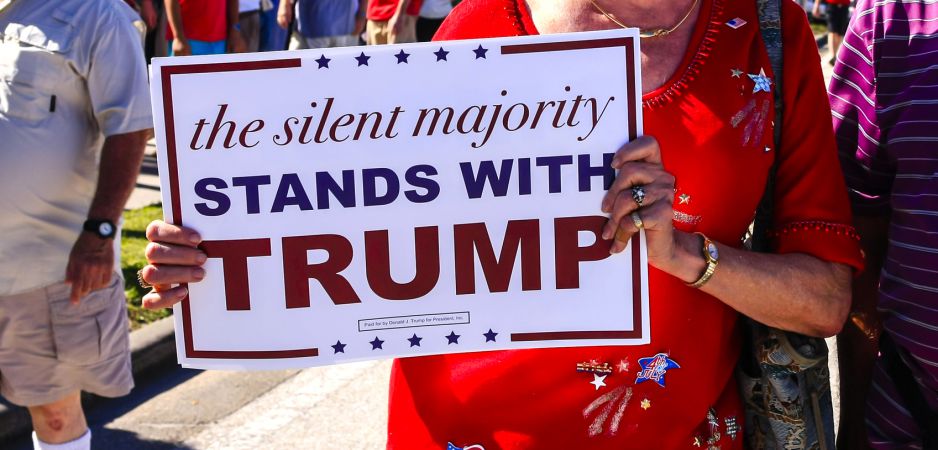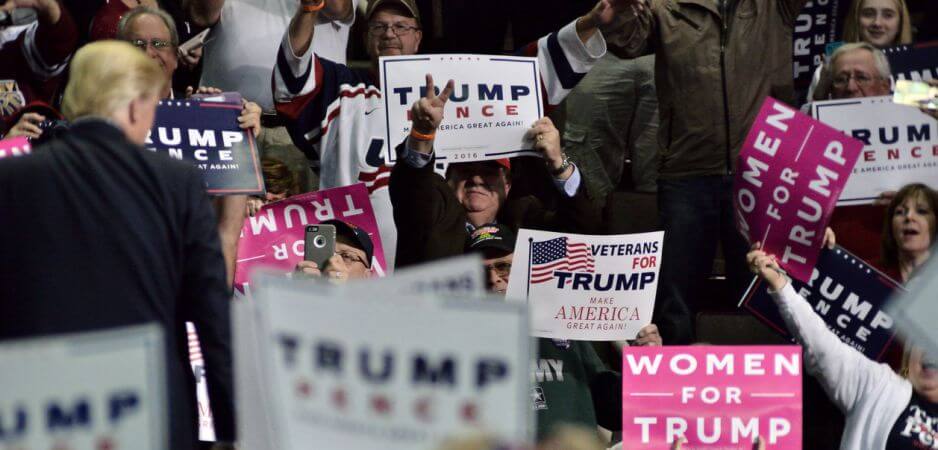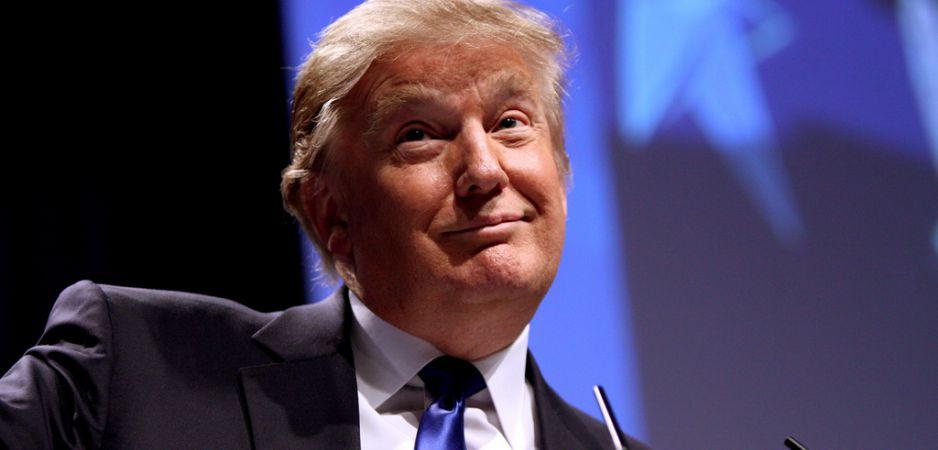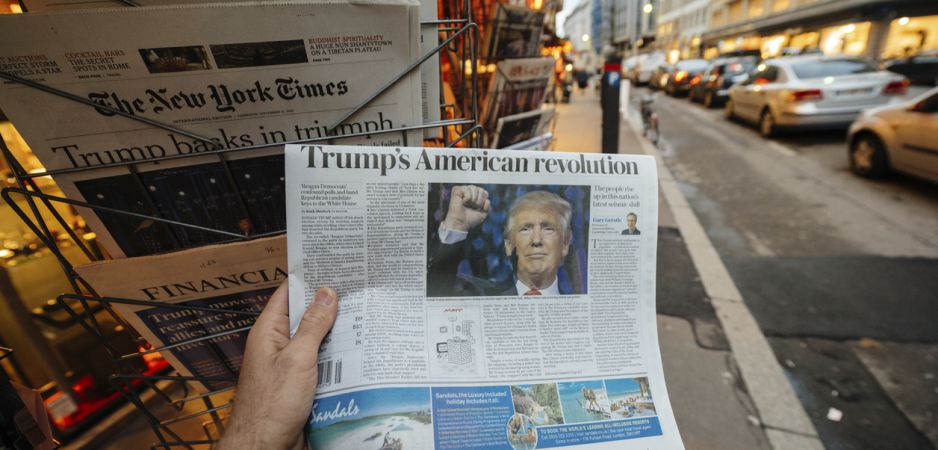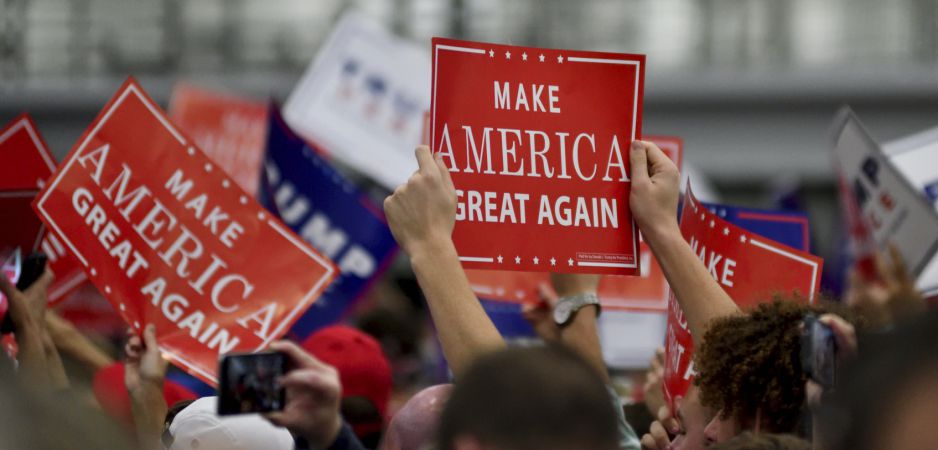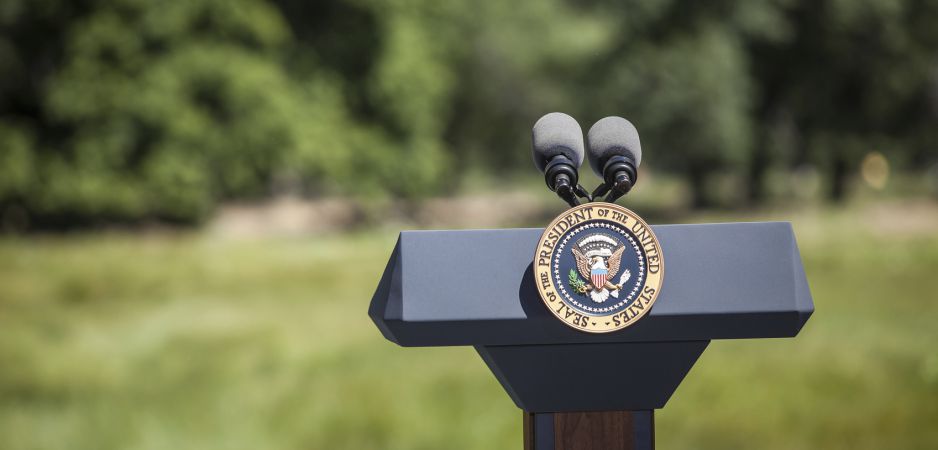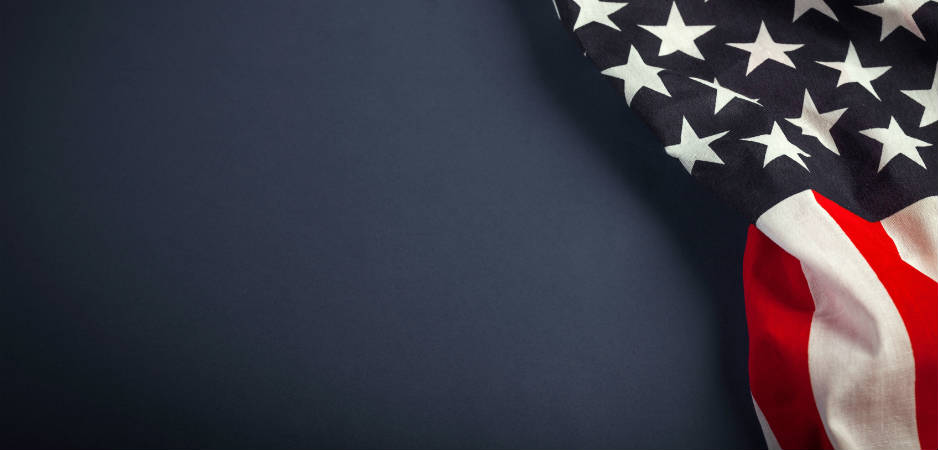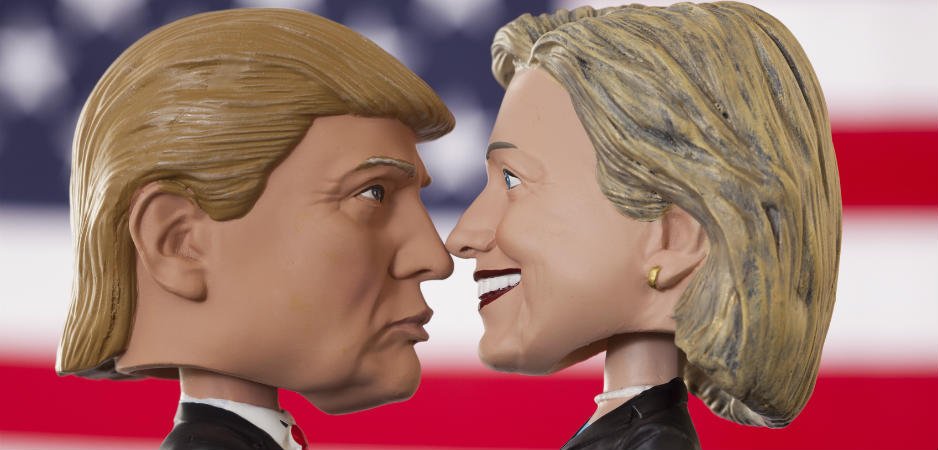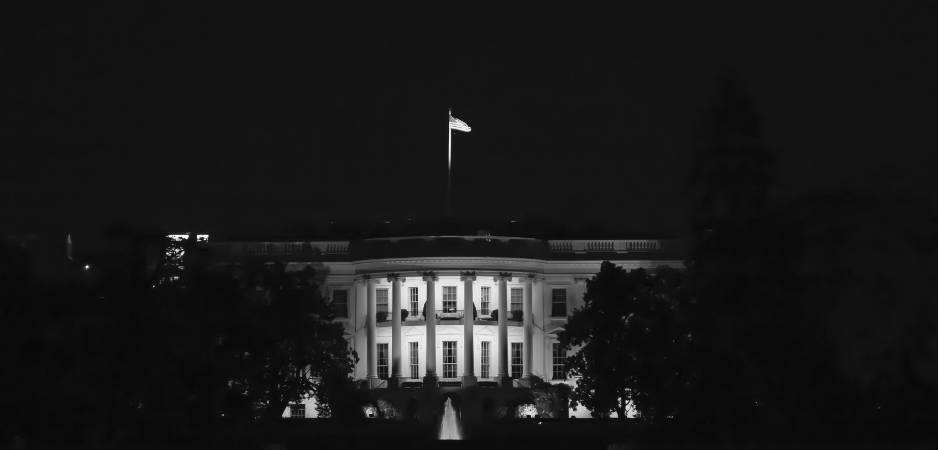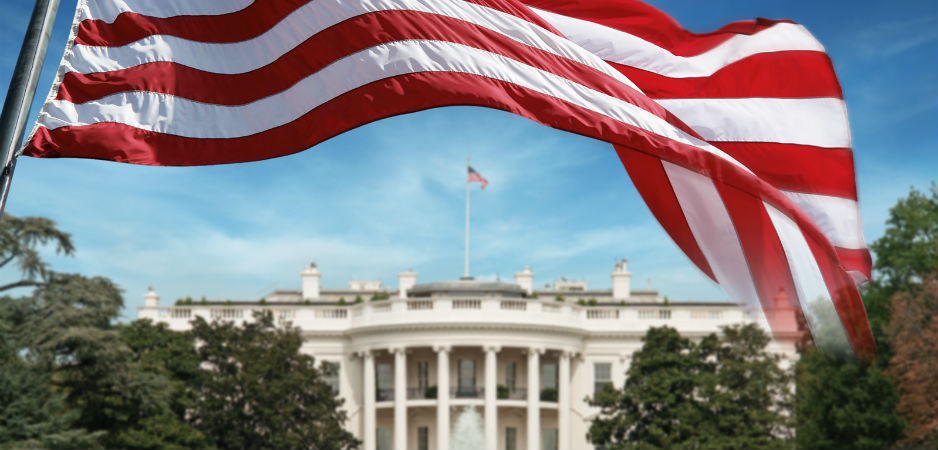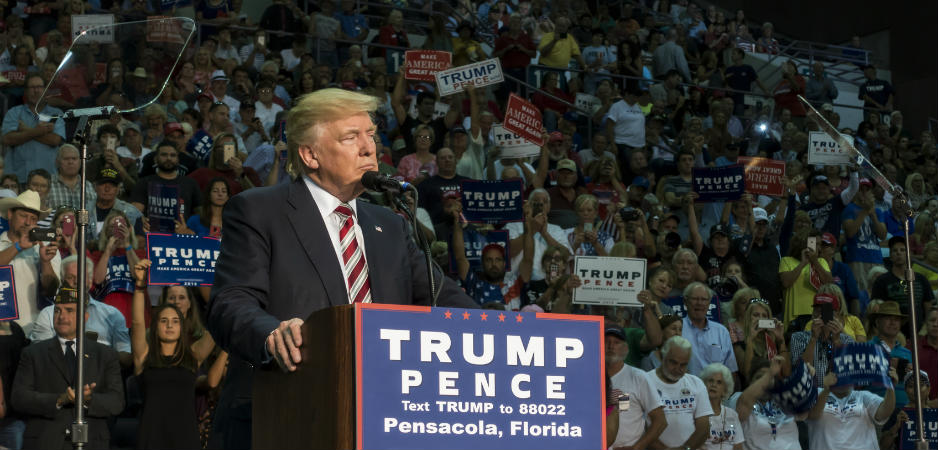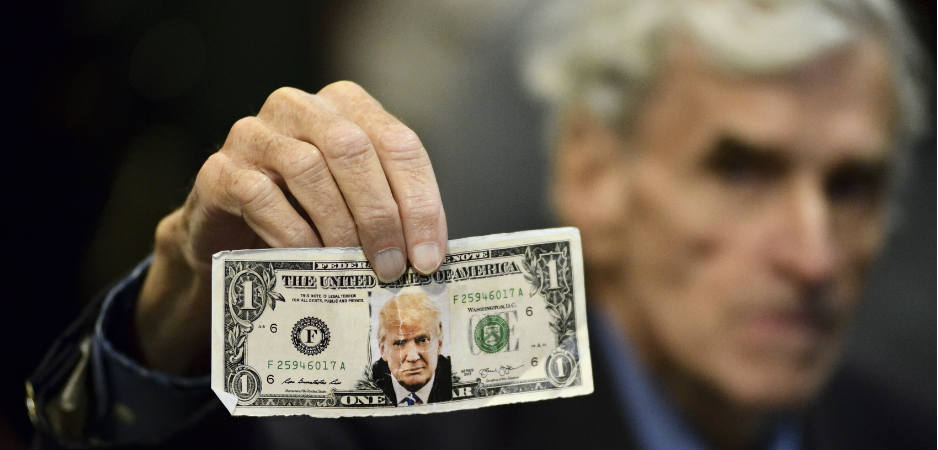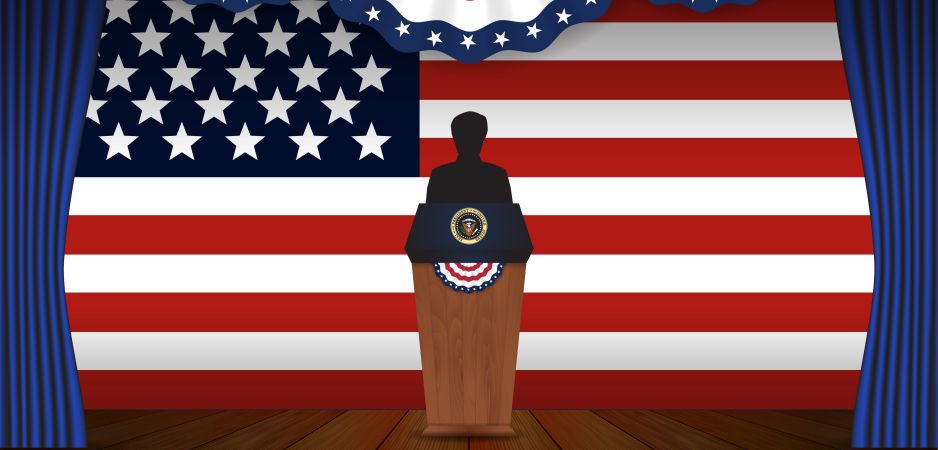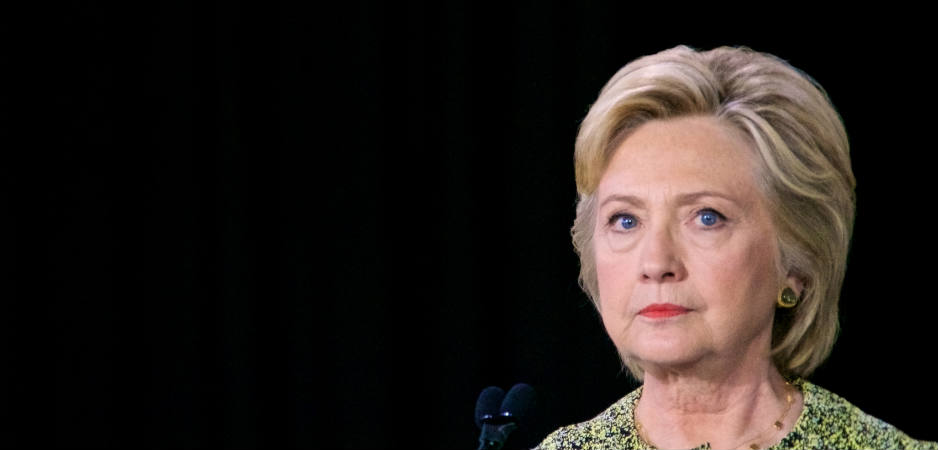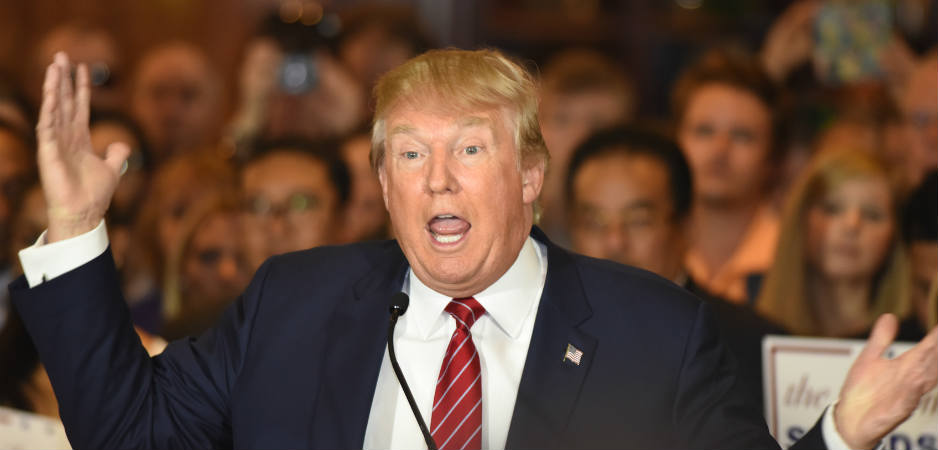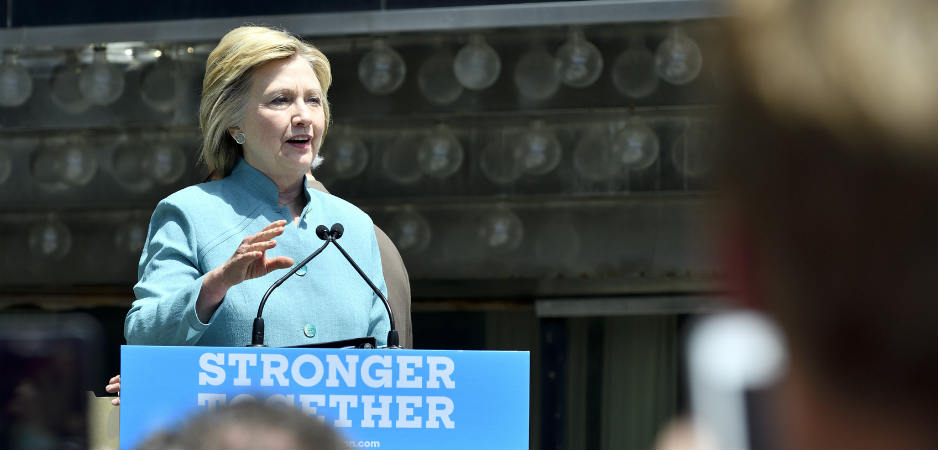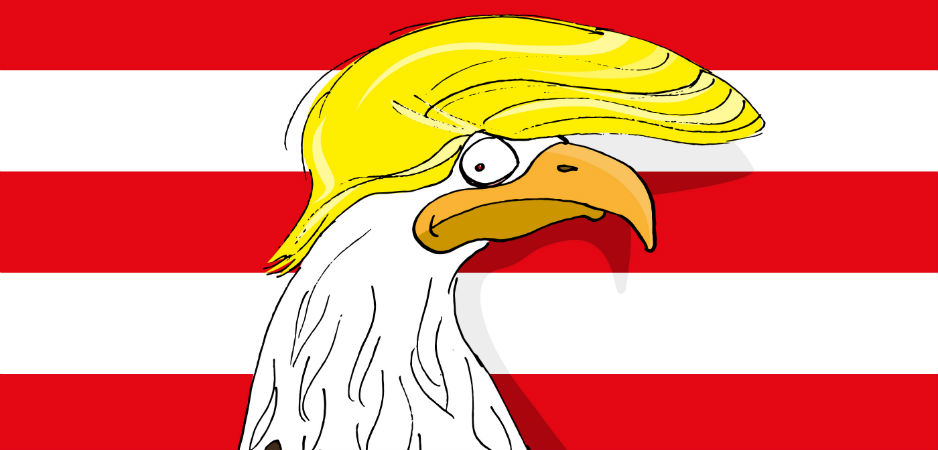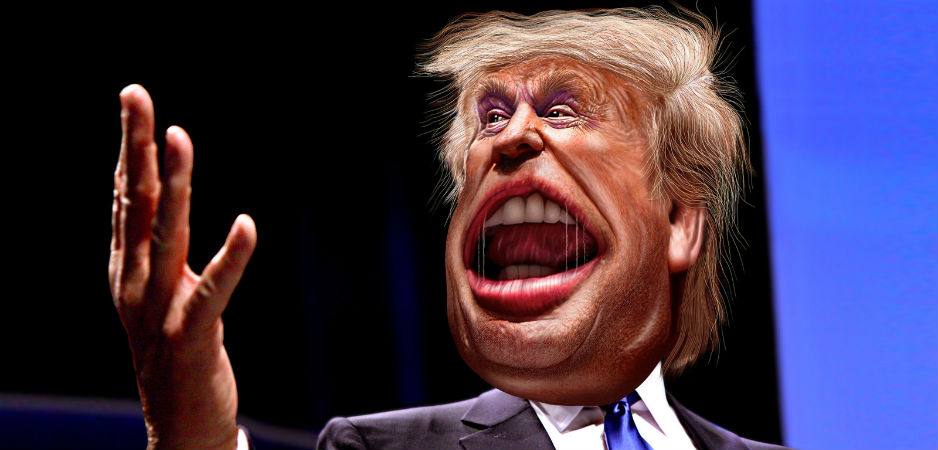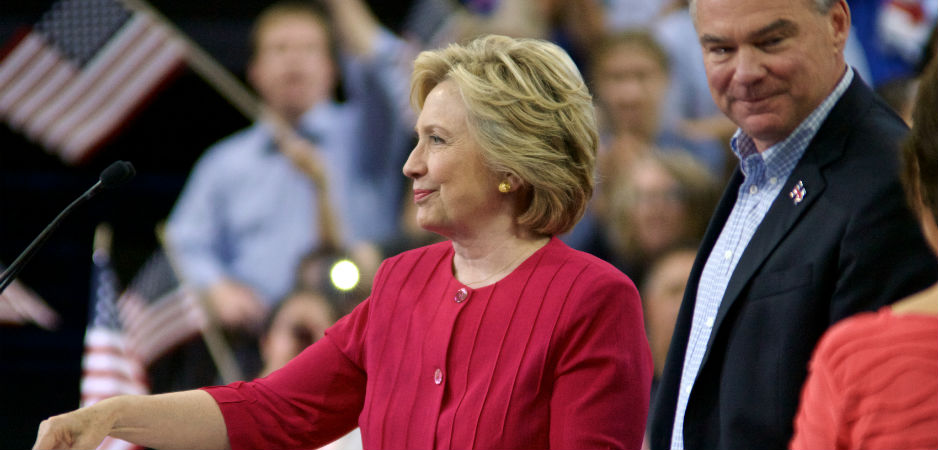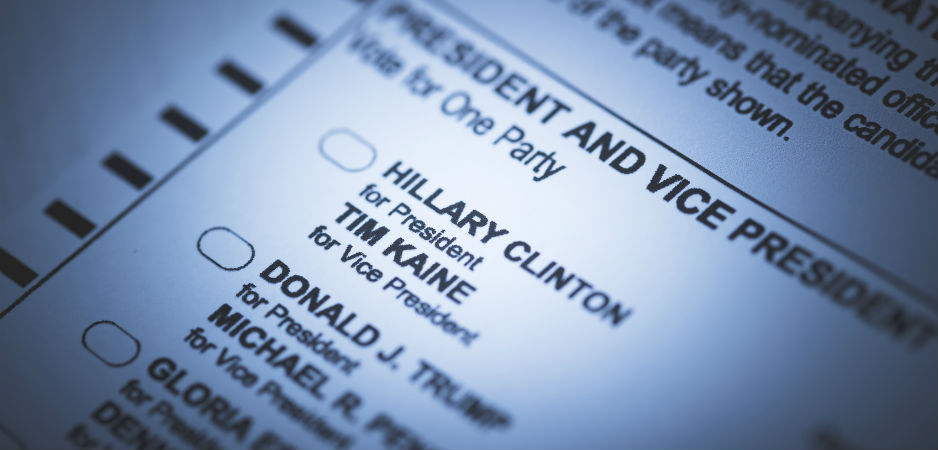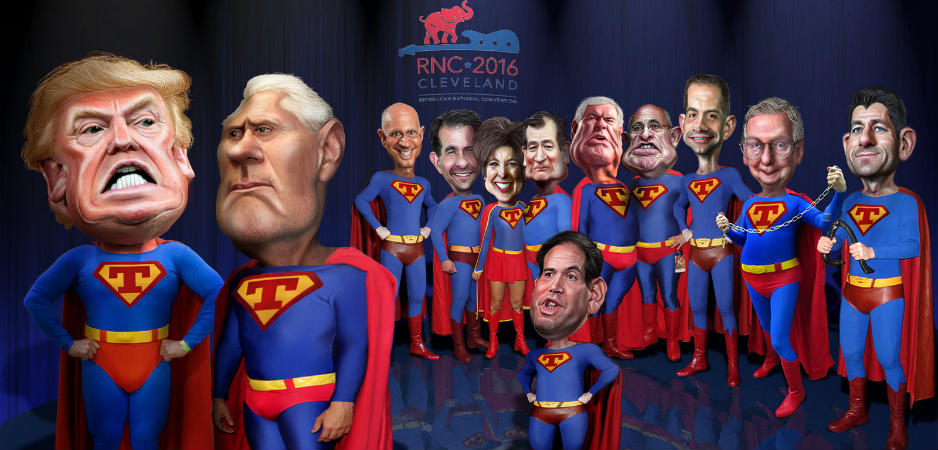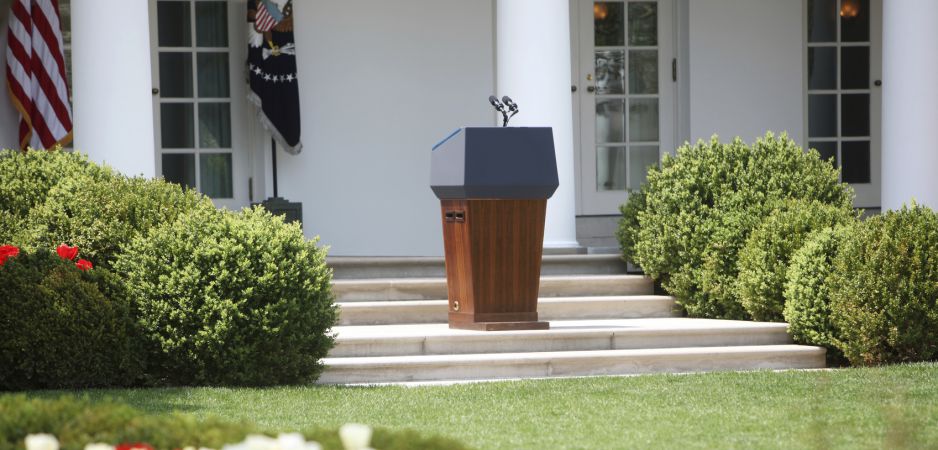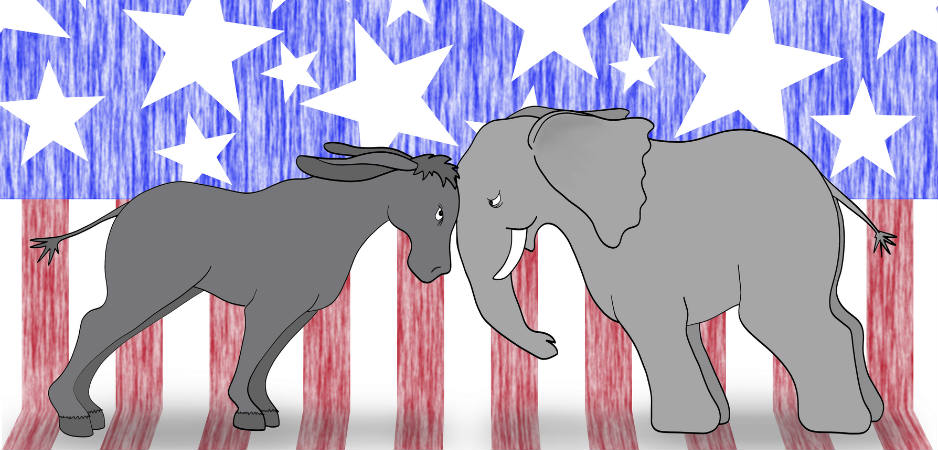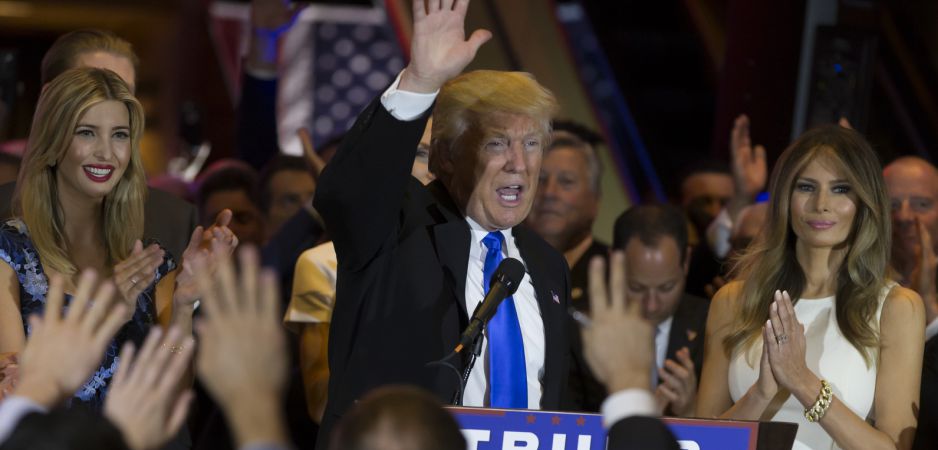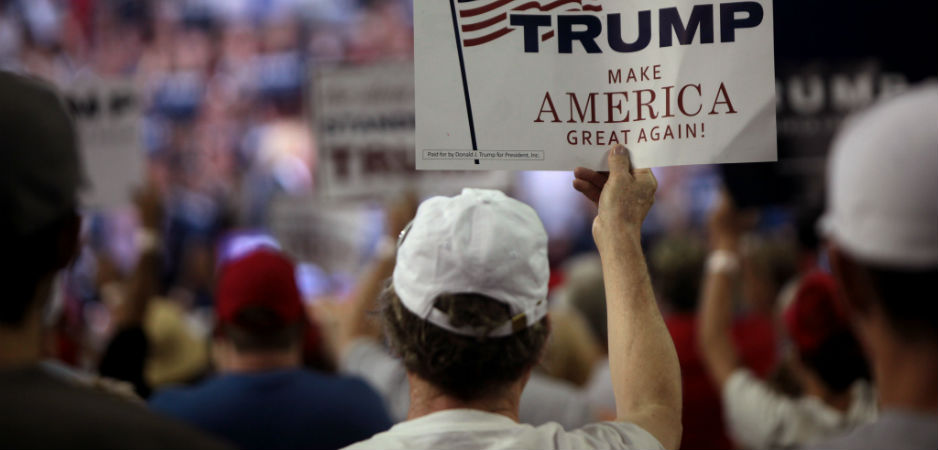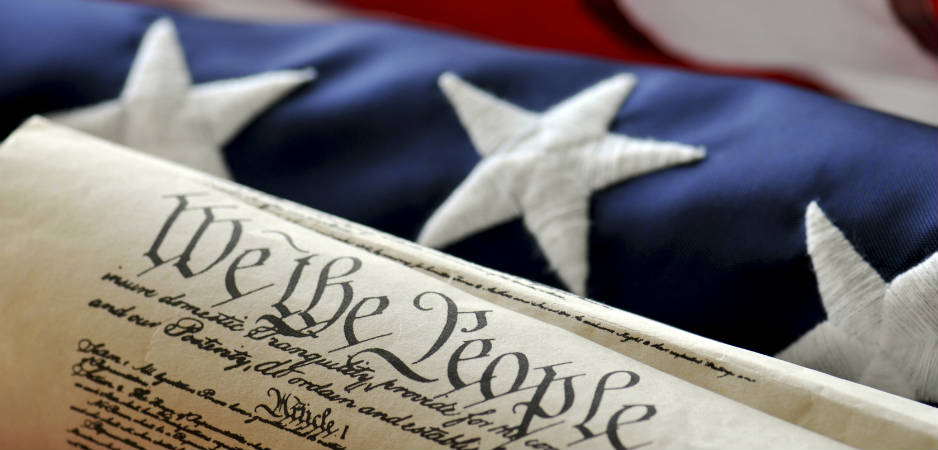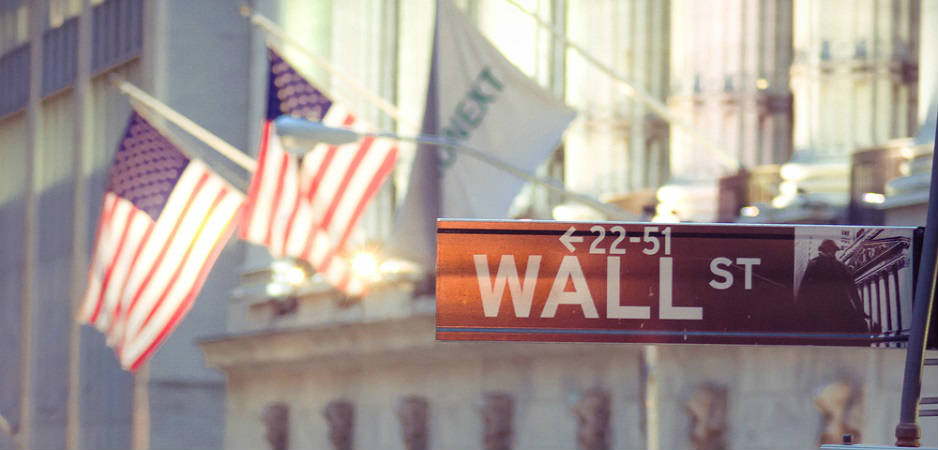Donald Trump and Brexit could mark the end of Western liberal history.
In German history, November 9 is known as Schicksalstag (Day of Fate), with far-reaching implications for Europe. On November 9, 1918, Kaiser Wilhelm II abdicated in the wake of the popular uprising of the “November revolution” and the proclamation of the first German republic. During this short-lived experimentation with democracy, an attempted coup d’état by a radical right-wing group linked to Adolf Hitler failed on November 9, 1923. On November 9, 1938, the Nazis orchestrated violent pogroms against Jewish citizens, which were seen as the start of unspeakable atrocities to come. And on November 9, 1989, the fall of the Berlin Wall promised a new era for German, European and international politics.
It is ironic, therefore, that November 9, 2016, could become an American, transatlantic and global “Day of Fate” of another kind. The election of Donald Trump as the 45th president of the United States of America is feared by some as leading to a US exit from liberal order.
The End of Liberal History?
To put it even more dramatically, 27 years after Francis Fukuyama’s infamous essay, “The End of History,” and the belief in Western and even global triumph of political and economic liberalism, may we be witnessing the “end of liberal history” for the Western world—and indeed the planet.
Let us make no mistake: 2016 has already been a historical caesura for the Western claim of supporting a liberal order. Just like the Brexit night of June 23-24 shattered the axiomatic belief in European integration amidst the slogan of “taking back control,” the night of November 8-9 sent shockwaves across the Atlantic amid European populists’ jubilation about an American “liberation.”
Yet this shock should not have come as a complete surprise. The rise of angry and desperate populism is not just a phenomenon of 2016, but has been accelerating in the West since at least the financial crisis of 2008. Even though economics and income inequality cannot explain the full complex picture of the rise of populism, it has been a decisive cause behind a wave of anti-liberal and anti-democratic sentiments on both sides of the Atlantic.
Globalization and trade liberalization might have benefitted the world in general terms and aggregate numbers—even though institutions such as the International Monetary Fund (IMF) have recently questioned the benefit of neoliberal policies—but these arguments are not convincing enough for the individual voter who has not seen his or her income rise in relation to the upper elites.
It might be counterintuitive or irrational to expect a self-declared multibillionaire to improve the lives of struggling blue collar workers, but post-factual politics channels frustration, anger and despair to the ballot box on the expense of rationality.
Donald Trump and Campaign Promises
Yet it would be wrong to dismiss the motives and concerns of many Trump voters, and to make wrong assumptions about his supporters’ socioeconomic backgrounds. In fact, Trump garnered significant support among high-earning and highly educated white voters. His success was also due to protest votes, anti-establishment feelings and a strong desire for “radical change,” even at the cost of basic Western values.
Indeed, Donald Trump’s election campaign was built on the seemingly erratic, but actually a highly calculated spurring of protest votes against core values of liberalism. Open attacks on immigrants, Muslims, political opponents and people of different sexual orientation or beliefs, as well as free trade, collective defense and measures against climate change, have resonated with the majority of the American electorate.
A similar kind of radicalization and perceived legitimization of anti-foreigner sentiments, as witnessed in the aftermath of Brexit in the United Kingdom, could also emerge in the US. The rifts in American society that already opened during the election campaign, fueled by divisive rhetoric, are set to widen further.
Either President Trump will try to implement some of his illiberal election promises and severely damage basic democratic values, or he chooses not to implement his promises and risk more vitriolic anger among his electorate about feeling duped.
The expectations among many voters who, above all, wanted a president that stood for “radical change” (however illiberal) and a break from the “establishment” will be disappointed if most of the outlandish election promises will not be kept. This creates a dangerous dilemma domestically. This election will not only change US politics and society, but will also have far-reaching implications for European geopolitics and global governance.
Trump’s comments during the election campaign about the North Atlantic Treaty Organization (NATO) being “obsolete,” and his questioning of Article 5 in the case of a Russian attack, have deeply worried the Baltic states. Across Europe, as right-wing populists such as Marine Le Pen and Geert Wilders welcomed the “US revolution” and “American Patriotic Spring,” fears of a knock-on effect on European liberalism and democracy are emerging.
The Liberal Movement
But are we really witnessing the “end of Western liberal history” as we know it?
Probably not. Despite a high level of uncertainty and lack of predictability, even a Trump administration will have to adjust to the realities of international politics.
Even though the Republican grip on Congress and the Senate will allow Trump significant room to maneuver, the reconciliatory tone of the president-elect’s acceptance speech indicated that election rhetoric and actual governing will be two different things.
International and transatlantic politics have been built around strong norms, institutions and international organizations. And even though the European Union, NATO, the United Nations, the IMF and the World Trade Organization face strong problems of their own, they provide important incentives for international cooperation.
Yet this is neither to ignore the damage that Trump’s vitriolic rhetoric has already caused, nor to belittle the negative impact of his presidency on the probability of solving major global problems, such as climate change, economic governance and international security.
The biggest strength of ugly populism has always been the passivity and silence of those who were not ready to actively oppose it. It is, therefore, imperative not only for governments to strengthen liberal institutions, but also for anyone sincerely interested in a world of decency, humanism, open-mindedness, multiculturalism, fairness and global problem-solving to defend core liberal values, which we have taken for granted for far too long.
This might also be easier said than done. Calling for, and building up, a liberal counter-movement will not be easy. But as liberals, we will only have ourselves to blame if we accept the end of Western liberal history without a stir.
The views expressed in this article are the author’s own and do not necessarily reflect Fair Observer’s editorial policy.
Photo Credit: Csfotoimages
For more than 10 years, Fair Observer has been free, fair and independent. No billionaire owns us, no advertisers control us. We are a reader-supported nonprofit. Unlike many other publications, we keep our content free for readers regardless of where they live or whether they can afford to pay. We have no paywalls and no ads.
In the post-truth era of fake news, echo chambers and filter bubbles, we publish a plurality of perspectives from around the world. Anyone can publish with us, but everyone goes through a rigorous editorial process. So, you get fact-checked, well-reasoned content instead of noise.
We publish 2,500+ voices from 90+ countries. We also conduct education and training programs
on subjects ranging from digital media and journalism to writing and critical thinking. This
doesn’t come cheap. Servers, editors, trainers and web developers cost
money.
Please consider supporting us on a regular basis as a recurring donor or a
sustaining member.
Support Fair Observer
We rely on your support for our independence, diversity and quality.
Will you support FO’s journalism?
We rely on your support for our independence, diversity and quality.


